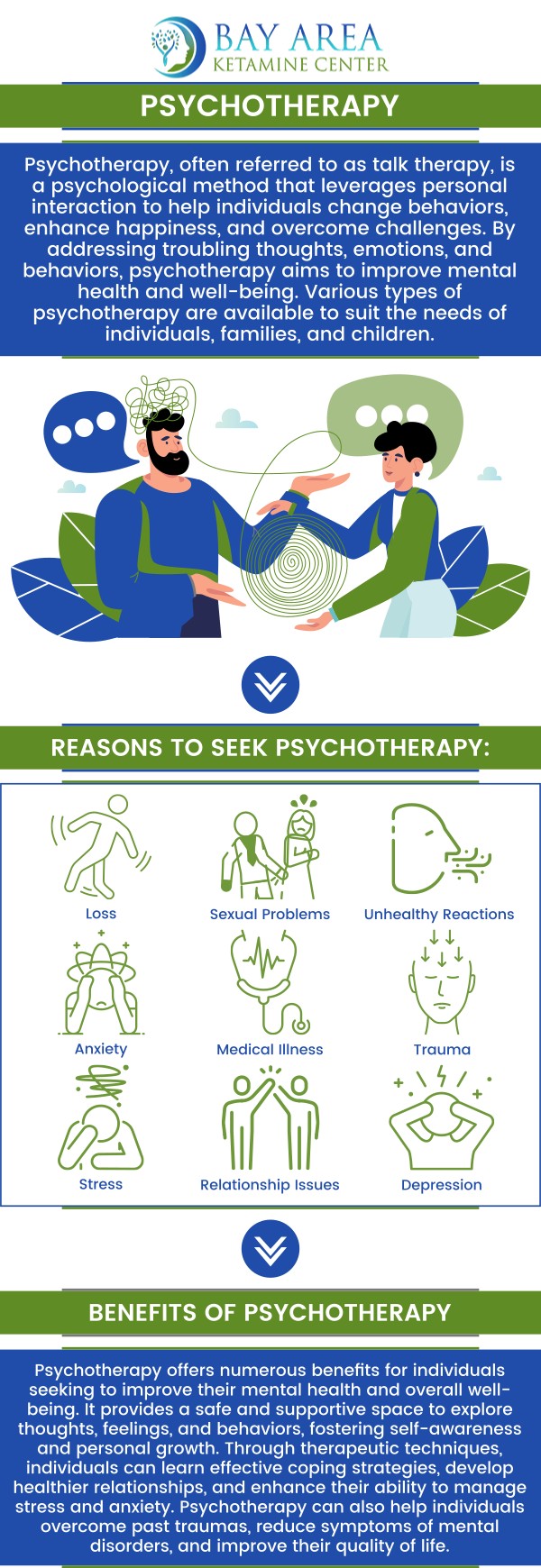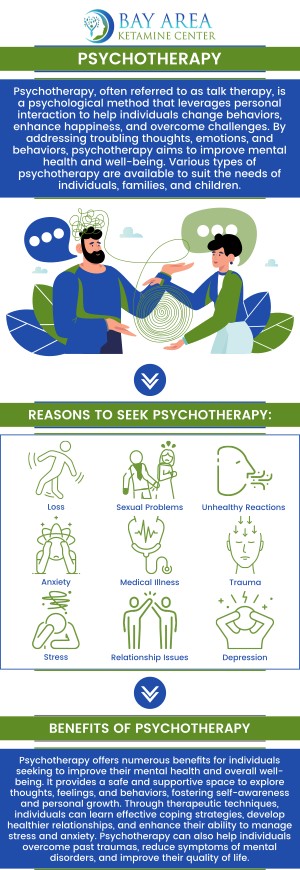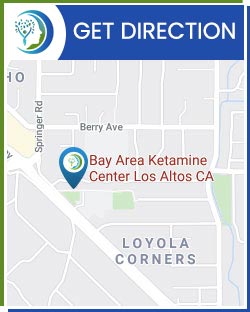Who Can Benefit from Ketamine-Assisted Psychotherapy (KAP)?
At Bay Area Ketamine Center, Ketamine-Assisted Psychotherapy offers transformative benefits for individuals struggling with treatment-resistant depression, anxiety, PTSD, and other mental health conditions. This innovative therapy is particularly helpful for those who have not found relief through traditional treatments. Our experienced team personalizes each session to meet your specific needs, fostering healing and emotional breakthroughs to support your mental well-being. For more information, contact us today or schedule an appointment online. Our clinic is conveniently located at 746 Altos Oaks Drive Suite B, Los Altos, CA 94024.


Table of Contents:
What are the long-term benefits of Ketamine Assisted Psychotherapy?
Can Ketamine Assisted Psychotherapy help with treatment-resistant depression?
Is Ketamine Assisted Psychotherapy effective for anxiety disorders?
How quickly will I see results from Ketamine Assisted Psychotherapy?
Can Ketamine-Assisted Psychotherapy be used alongside other treatments?
One of the primary advantages of KAP treatment is its rapid and sustained effect on treating depression. Contrasted with traditional antidepressants, which can take weeks to start working, ketamine therapy can provide immediate relief from depressive symptoms. The effects of our KAP can persist for weeks, months or even years after a single treatment.
In addition to its antidepressant effects, KAP also reduces symptoms of anxiety. The calming and dissociative effects of ketamine can helps patients confront and process traumatic events or negative thoughts, leading to a reduction in anxiety symptoms over the long term.
KAP can also lead to improved emotional regulation and cognitive function. The combination of ketamine’s calming effects and the supportive nature of psychotherapy helps patients develop healthier ways of managing and expressing their emotions. This improved emotional regulation, coupled with enhancements in memory, attention, and problem-solving abilities, can translate into better stress management, improved relationships, and a greater overall sense of control and stability.
Through KAP, long-term neuroplasticity is promoted as well, facilitating the formation of new neural connections as well as pathways in the brain. This neuroplasticity leads to increased resilience against stress and improved cognitive function, further contributing to long-term mental health and well-being. KAP has also been shown to reduce the risk of relapse in individuals with substance use disorders.
Treatment-resistant depression (TRD) affects millions of people worldwide and remains a substantial challenge present in the field of mental health. Conventional treatments, including antidepressants and cognitive behavioral therapy, often fail to facilitate long-term relief for many patients. However, Ketamine Assisted Psychotherapy (KAP) is a promising therapeutic approach that we offer, providing new hope for individuals who struggle with persistent depressive symptoms.
KAP involves administering low doses of ketamine under clinical supervision. Ketamine, a dissociative anesthetic and psychedelic drug, induces a state of detachment from the external world, promoting introspection and the exploration of deep emotional patterns. Our professionally trained therapists guide patients through this process, helping them integrate their experiences, address underlying psychological issues, and promote emotional healing.
While the exact mechanism through which ketamine works to relieve depression remains unclear, it’s thought to modulate the neurotransmitter glutamate and stimulate the growth of new synapses in the brain. This promotes the production of mood-regulating neurotransmitters such as serotonin and dopamine, effectively rewiring certain neural pathways, which is believed to alleviate depressive symptoms rapidly.
KAP is a combined therapeutic approach that uses the drug ketamine along with psychotherapy. Ketamine works by targeting the NMDA receptors in the brain, which are critical in regulating mood and cognition. By blocking these receptors, ketamine can help reset neural pathways that have become dysfunctional in anxiety disorders.
During the “window of opportunity” created by ketamine, psychotherapy can be more effective, enabling individuals to address and process traumatic or distressing experiences contributing to their anxiety.
While the exact mechanisms resulting in the long-term benefits of KAP are not fully understood, they may be related to increased neuroplasticity, improved stress response regulation, and reduced brain inflammation.
The timeline for results from KAP can vary significantly among individuals. It’s influenced by factors such as symptoms severity, individual physiology, and ketamine dosage and frequency.
We remind patients that each person’s body responds differently to treatment, and no two experiences are exactly alike. Some patients may notice immediate relief after their initial KAP session, but this isn’t always the case. Most patients typically start to see a significant improvement in their symptoms after two to three weeks of regular sessions, but it can take up to six weeks or more for others to see a noticeable change.
The benefits of KAP often unfold gradually and cumulatively, building up over time, and the real benefits often come from the work done in psychotherapy sessions in conjunction with the ketamine treatment. It’s therefore crucial to continue with your treatment plan even if you don’t see immediate results.
At the Bay Area Ketamine Center, we can also combine KAP with various holistic therapy forms, such as mindfulness meditation, yoga, exercise, and other relaxation techniques. These complementary approaches support mental well-being by reducing stress, improving mood, and enhancing cognitive function. The combination of KAP and lifestyle interventions can create a synergistic effect, promoting long-term health, overall well-being, and recovery.
We use KAP as a complement to traditional psychotherapy. The unique physiological state induced by ketamine during KAP sessions enhances the therapeutic process and facilitates a deeper exploration of psychological issues. This allows patients to gain new insights and perspectives that can be further discussed during regular therapy sessions. Additionally, ketamine promotes neuroplasticity, which aids in forming new neural connections and breaking down maladaptive patterns. This increased flexibility can make psychotherapy more effective by enhancing communication between brain regions involved in emotional regulation and self-reflection.
KAP can interact with other medications that are used to treat mental health disorders. For instance, KAP can be used with certain medications, especially antidepressants, where it has been shown to enhance the efficacy of SSRIs and MAOIs. The combination of KAP and medication provides a more comprehensive approach, targeting multiple neurochemical systems involved in mood regulation. Careful monitoring and adjustment of medication regimes may be necessary when introducing ketamine into the treatment plan. For more information, contact us today or schedule an appointment online. Our clinic is conveniently located at 746 Altos Oaks Drive Suite B, Los Altos, CA 94024. We serve patients from Los Altos CA, Sunnyvale CA, Palo Alto CA, Stanford CA, Atherton CA, Cupertino CA, Santa Clara CA, Mountain View CA, Loyola CA, and surrounding areas.



Check Out Our 5 Star Reviews







